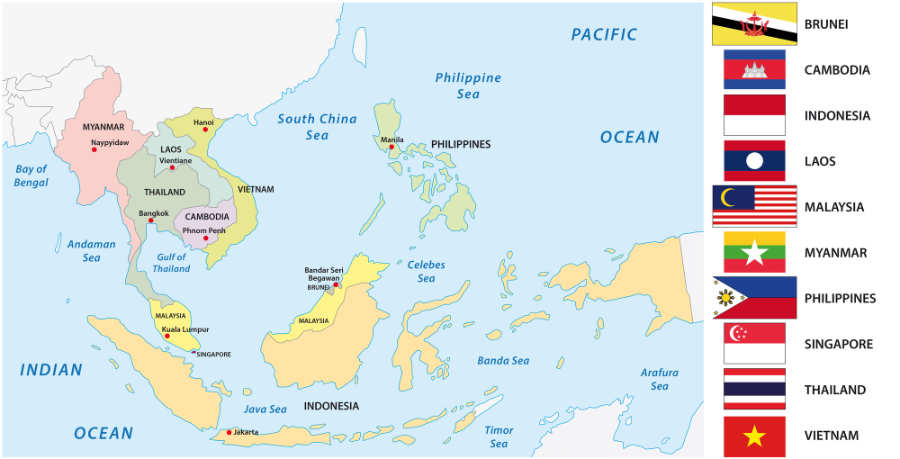Alexey Overchuk, Russia’s Deputy Chairman, has been speaking at the East Asia Summit in Kuala Lumpur this week and has identified logistics as a key driver in developing Russia–ASEAN regional trade. Overchuk stated, “Given its geographical location and colossal transit potential, Russia invests in global transport connectivity through the development of transport corridors connecting Eurasia along the East—West and North—South axis, paying great attention to increasing the capacity of the Far East port infrastructure. We are establishing new container shipping routes with Southeast Asian countries and are working on the development of the Northern Sea Route.”
ASEAN includes Brunei, Cambodia, Indonesia, Laos, Malaysia, Myanmar, the Philippines, Singapore, Thailand, and Vietnam. It is a complete free trade area and also has free trade agreements with China and India. ASEAN has a total population of 680 million and a combined GDP (PPP) of US$10.7 trillion. Its 2025 growth rate is expected to be about 4.2% with some regional variabilities.
Trade turnover between Russia and ASEAN in 2024 reached a record high for the second consecutive year, increasing by 5.8% to reach US$23.2 billion. This growth follows a decade-long trend that has seen overall trade increase by 70%. Key areas of cooperation include the digital economy, agriculture, energy, logistics, and a 21% rise in mutual tourism, which exceeded 2 million trips.
Both sides are focusing on digitalization and are looking to cooperate on digital platforms and solutions, while agricultural joint ventures are a priority. Energy cooperation is a key area of focus, as are logistics, with this sector also prioritized for joint development. Russia and ASEAN are looking to diversify their trade to take the onus away from energy, which has been subjected to sanctions interference.
During the period January-August 2025, Russia-ASEAN trade increased by 32.1%, suggesting a total figure in excess of US$30 billion will be achievable for the year.

During his speech, Overchuk emphasised that Russia attaches particular importance to developing its partnership with ASEAN by strengthening the connectivity of the Northern Eurasia and Southeast Asia macro regions. He noted the positive effect of Free Trade Agreements that Russia has as a member of the Eurasian Economic Union. This is a specific reference to the Vietnam-EAEU Free Trade Agreement which has been especially lucrative for both countries. Several other ASEAN countries are currently in the process of negotiating similar deals.
Overchuk stressed the importance of developing dialogue and cooperation between countries in the context of a new period of global development and the challenges facing countries. These include the growing demand for new resources, issues of food and energy security, the redirection of investments, and measures to mitigate against tariff and sanction barriers introduced to curb the development of emerging markets.
According to him, the most important task is to find new points of balanced international economic relations. He also stated that Russia holds a leading position in the global agricultural market, contributing to the achievement of global food security, and remains a reliable supplier of traditional energy resources.
Further Reading

 Русский
Русский














